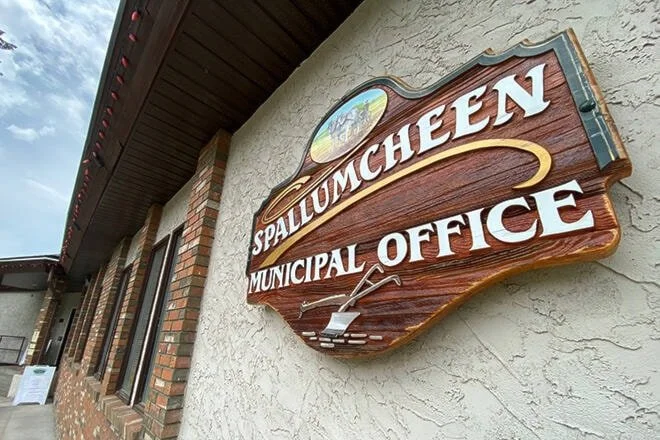A community consulting firm is asking, ‘Water you doing, Spall?’ The Township of Spallumcheen is looking to get the word out about the critical importance of water conservation. According to Spall reports, the Okanagan has one of the highest rates of water use per person in Canada, meaning there is less water available per person in the Okanagan than anywhere else in the country.
Concerns mount in southeast Manitoba over proposed silica sand mining project near Vivian
A mining project that would potentially pump upwards of $1-billion into the provincial economy over nearly a quarter century has plenty of opposition. Residents, business owners and politicians from in and around the Rural Municipality of Springfield packed the Anola Community Centre on Saturday for a public consultation, many raising concerns about Calgary-based Sio Silica's proposed sand silica mine.
Groundwater warning in California a wake-up call for Canada: Famiglietti
Renowned water scientist Dr. Jay Famiglietti (PhD), lead researcher of a scientific team that in late December published a paper in the prestigious Nature Communications journal detailing what their analysis indicates, has a blunt message: “All around the world, we have been kicking the can down the road for a long time on effectively managing groundwater. Now we are at the end of the road, and it’s a dead end.”
Your letters for June 10, 2022
Earlier this week, I thought about the amount of water it takes to wash one’s glasses. The same amount of water is required for an entire day by a family of four in some parts of Africa. In Canada, we are lucky to have the greatest supply of water per square foot than anywhere else in the world. It is also the cleanest. It amazes and amuses me that we still buy bottled water from suppliers who use our water to sell back to us. Do we waste any of our precious water? Yes, we do, in countless ways. Do we give away our water to the U.S.? Yes, we do, and often we fail to collect, due to Chapter 11 bankruptcies that frequently occur south of the border.
Water stewardship group: groundwater levels lower this year in Columbia Basin
Non-profit water stewardship organization Living Lakes Canada (LLC) says that the hot, smoky and dry conditions experienced throughout the Columbia Basin over the past summer aren’t the only indicators of accelerated climate change, and that low groundwater levels have also shown a decrease in some aquifers from last year to now. Groundwater data is obtained from aquifers LLC monitors as part of their Columbia Basin Groundwater Monitoring Program. An aquifer is an underground layer of broken rock, gravel, sand or silt that contains groundwater.
Well water fears prompt calls to halt proposed bottling plant near B.C. village
Angie Kane knows how important well water is when you live in the heart of dry, rural B.C. For 17 years, she lived on a ranch outside Clinton, a semi-desert village about 120 kilometres northwest of Kamloops. Many residents who live outside municipal boundaries draw water from aquifers. For Kane, the arid climate always kept the importance of her water supply top of mind. "That is the biggest concern, for anyone who has a well, is will it dry up? Or will it go away?" she told CBC News.
Sask. researcher says provincially-encouraged oil, gas extraction method could put groundwater at risk
A University of Saskatchewan researcher says a form of oil extraction being encouraged by the Saskatchewan government needs more research and monitoring to avoid potential long-term contamination of drinking water in the province.
Grant Ferguson said his research suggests "waterflooding," a conventional form of oil extraction, could become a bigger problem for Saskatchewan than the more controversial practice known as fracking.
Water is priceless, but not free: How much should it cost?
No Canadian pays for water – not citizens, farmers or industry. Under NAFTA first – and now the USMCA – if the government starts selling water, it becomes an exportable product, which is widely recognized as a very bad idea. What does cost money is the use of water infrastructure: things such as pipes, testing and labour. Large industrial users are charged more than residents for the privilege, but the amount collected from commercial water bottlers in Ontario has long been criticized as ridiculously low. Until 2017, the administrative fee was just $3.71 for every million litres. The provincial government now charges $503.71 for that amount.









